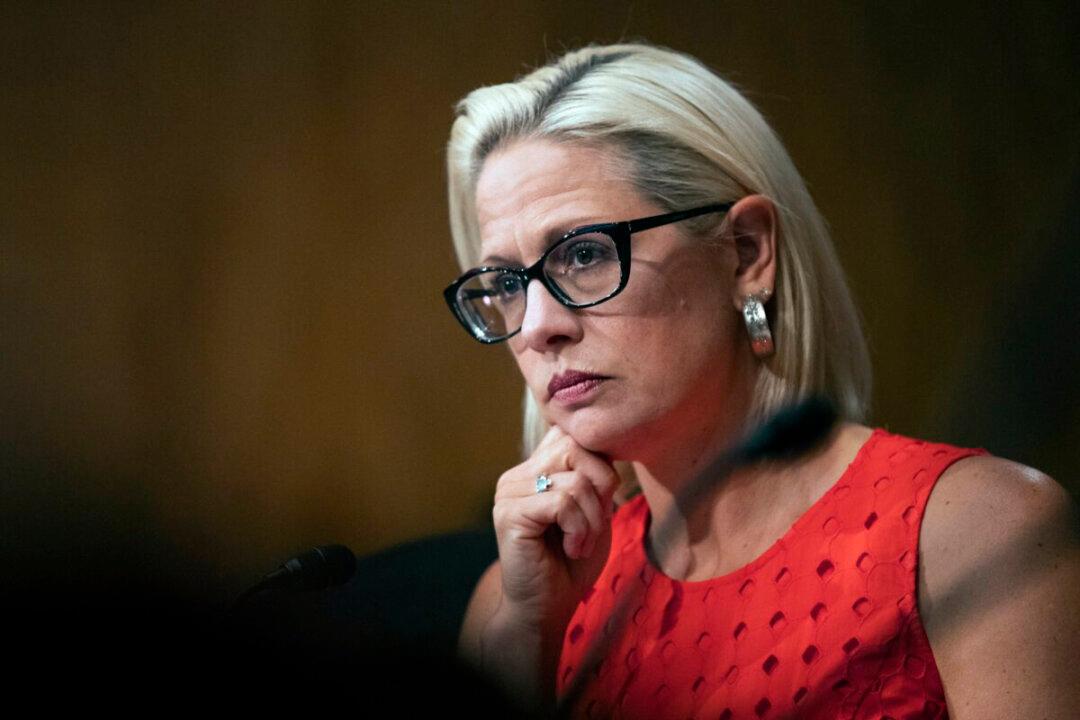Sen. Kyrsten Sinema (D-Ariz.) has reached a deal with Democrats over a multi-pronged spending package that lawmakers say would reform the tax code, lower the federal deficit, lower health care costs, and invest in energy and climate change programs.
The spending package appeared to be a revised, alternate version to the Build Back Better (BBB) bill, which would fulfill a major agenda of President Joe Biden.




